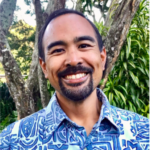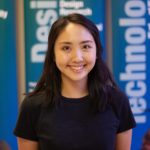Session Description
By the school year 2022-2023, all teachers in Hawaii will be required to provide instruction in Computer Science for all K-12 students. Despite this new mandate, limited guidance has been provided from the state’s Department of Education as to what Computer Science instruction should look like in the classroom. To help address this need, the present project designed and evaluated an online professional development module for upper-elementary teachers. The topic of the module was Computer Science, and it was designed for educators in a rural school district. The goal of the project was to (1) increase teachers’ knowledge of computer science, Computing Systems, and Networks and the Internet, and (2) increase teachers’ knowledge of upper-elementary standards for Computing Systems and Networks and the Internet standards. Seventeen participants (n = 17) completed the asynchronous module along with a pretest, embedded assessment, and a posttest. These instruments were used to assess the module's ability to increase teachers’ content knowledge. All of the participants demonstrated increased performance between the pretest and posttest with an average increase of 28 points. The professional development module was effective in increasing teachers’ knowledge about important computer science topics and standards. Attendees can expect to learn about an effective strategy for increasing teachers’ computer science knowledge with the hopes that it can be generalized for broader application within professional development courses for educators.
Presenter(s)
 Kawika Gonzales
Kawika Gonzales
Education Department/ LTEC
University of Hawaii at Manoa
My name is Kawika Gonzales. I am in the Learning Design and Technology Master’s Program. I was raised on the island of Moloka’i where I currently reside as a 5th grade, general education teacher. I have been teaching for the past 20 years. Through my years of teaching, I have been able to learn a lot about technology, STEM, and more recently, computer science. As well as being a general education teacher I am also the STEM coordinator, Math Chairperson, and a part of the leadership team at our school.

 Michelle Gima
Michelle Gima Jessica Evans
Jessica Evans Heather Zeng, Ph.D.
Heather Zeng, Ph.D. Nathan Valdez
Nathan Valdez Kyle Morton
Kyle Morton Lorraine Hayman
Lorraine Hayman Tracy Crawford
Tracy Crawford Jennifer Romano
Jennifer Romano Lauren Critchley
Lauren Critchley